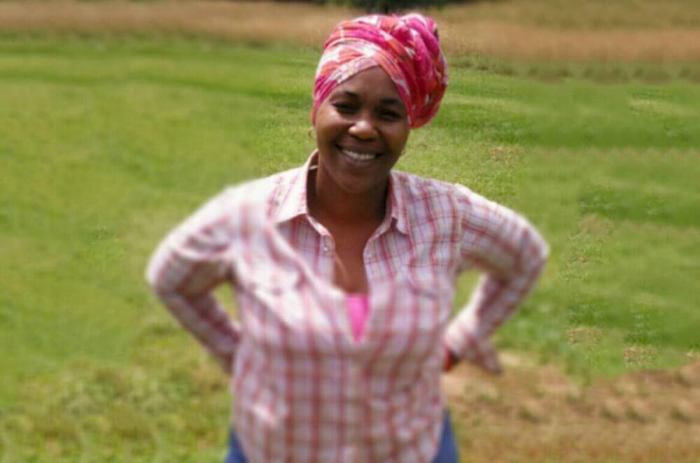Christian Woman Forced to Remove Religious Headscarf at Alabama DMV, Told Only Muslims Can Cover Head

A Christian woman who was forced by DMV staff in Alabama to remove a headscarf she wore as a symbol of her faith in order to take a photo to renew her driver license is now suing local officials for violating her religious freedom rights under the U.S. and state constitutions.
The ACLU announced on Tuesday that it had filed a federal lawsuit on behalf of the Christian woman, Yvonne Allen of Tuskegee, asking the court to order DMV officials to allow her to retake her driver license photo with her headscarf intact.
"Today, the ACLU and ACLU of Alabama filed a federal lawsuit on Ms. Allen's behalf, arguing that Lee County's refusal to provide a religious accommodation to Ms. Allen violates her rights under the Alabama Constitution and the First Amendment to the U.S. Constitution. The lawsuit asks the court to order Lee County officials to allow Ms. Allen to retake her driver license photo with her headscarf," the ACLU said.
"Wearing a headscarf is an integral part of my Christian beliefs. In 2011, I moved with my children to Alabama after the end of a 12-year relationship with their father. I was lost, confused, hurt, and broken. But I turned to God and spent hours in prayer and study. During that time, it became clear to me that, to be obedient to God's Word and show my submission to Him, I had to cover my hair on a daily basis. In 1 Corinthians 11, Paul speaks very clearly without ambiguity about this. I have followed this command every day since and believe that removing my headscarf in public is extremely shameful and dishonors God," Allen first wrote in a statement on the issue in April.
According to the lawsuit, Allen visited the DMV office in Auburn on Dec. 29, 2015, to renew her expired license and was told she had to remove her head covering and eyeglasses in order to take the photo for the document.
"No ma'am, I don't uncover my hair," Allen said she told the clerk.
"She asked me, 'Is it for religious purposes?'"
"I smiled, 'Yes, ma'am,'" said Allen.
The clerk then asked Allen if she was Muslim and when Allen told her she is Christian the clerk told her that she would have to remove the headscarf.
"Ms. Allen informed the clerk that she does not uncover her hair. In response, the clerk asked her, 'Is it for religious purposes?' Ms. Allen responded, 'Yes ma'am.' The clerk then asked, 'Are you Muslim?' When Ms. Allen explained that she is a Christian, the clerk told her, 'No, then you need to uncover your hair. Only Muslim women have the right to cover their hair in the driver license photos,'" the lawsuit said.
A friend who had traveled with Allen tried to explain to the clerk that Allen "doesn't uncover her hair ever," but the clerk remained unfazed, insisting to Allen that: "You are not a Muslim, and Christian women don't cover their hair."
Research highlighted in the lawsuit argues that Christian women covering their hair as a sign of devotion to God is not an uncommon practice. It noted that before the 20th century, most Christian women kept their heads covered.
"Only recently have some followers of Western Christianity moved away from the head covering, but it is still practiced today by many individuals who believe it is necessary to maintain faithfulness to scriptural teachings," the lawsuit said.
According to David Bercot of Scroll Publishing: "In the West today, only the Mennonite, Amish, Brethren and Hutterite women still practice wearing a head covering at all times. However, in recent years, they have been joined by thousands of Christian women from house churches and other independent congregations who have re-discovered this New Testament practice."
Campaigns like The Head Covering Movement is also promoting a return to the practice of head covering during corporate worship, according to 1 Corinthians 11:2-16.
Bercot further noted that: "Christian women in eastern churches still cover their heads in church. Some of them cover their heads all of the time. In the west, some Plymouth Brethren women still wear the prayer veil in church, as do many black women."
The lawsuit charges that it doesn't matter how common the practice is, it is a part of Allen's religion.
"Regardless of how widespread the practice has been historically, or how commonly it is followed today, Ms. Allen sincerely believes that her personal Christian faith compels her to cover her hair when in public," said the lawsuit.





























